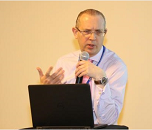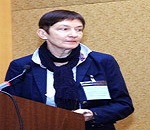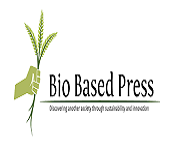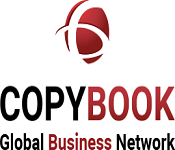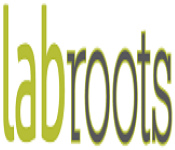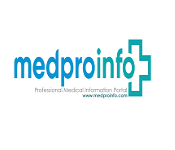Sessions & Tracks
Track- 01: Hematology and Hematologist
Hematology also spelled as Haematology, is a branch of drug which manages the reason, conclusion, treatment and curative action of the ailments, identified with blood and for the most part influences the construction and segments of the blood. Hematologists or Hem-pathologists are the therapeutic expert who manages the blood issue and treatment in the bigger part of the nations, the hematology is the medicinal due to fame that needs an extraordinary preparing and 8-10 years of Undergrad College more thinks about it. Also, individuals with this ability are ordinarily in an appeal.
Hem-pathologists
Medical technologists
Blood centered concerns
Pathology laboratories
Hematology Congress | Oncology Colloquium | Blood Disorder Conclave | Hematology Conversation | Oncology Conclave
Track- 2: Blood Disorders
The field of hematology covers a extensive range of disorders. Some of these disorders are compassionate, means they resolve completely with therapy or don’t cause symptoms and don’t affect overall lifespan. Some are long-lasting and lifelong but again don’t affect permanently. Some examples of blood disorders are:
-
The following categories describe blood disorders that cause a decrease in blood components or affect their function:
· anemia – if the disorder involves red blood cells
· leukopenia – if the disorder affects white blood cells
· thrombocytopenia – if the disorder concerns platelets
-
Categories of blood disorders that increase in blood components are:
· erythrocytosis – if the disorder involves red blood cells
· leukocytosis – if the disorder affects white blood cells
· thrombocythemia or thrombocytosis – if the disorder concerns platelets
Hematology Meeting | Oncology Forum | Blood Disorder Convention | Hematology Conclave | Blood Disorder Colloquium
Track-3: Blood Disorders, Symptom and Treatment
Some of the more common types of blood disorders include:
-
Anemias, including iron-deficiency anemia and sickle cell disease
-
Bleeding disorders, such as hemophilia and von Willebrand’s disease
-
Clotting disorders and blood clots (thrombophilia)
-
Blood cancers, including leukemia, lymphoma and myeloma
Symptoms of blood disorders
-
Signs of red blood cell disorders include:
Depending on your particular diagnosis, treatment might include:
-
Growth factors to stimulate blood cell production
-
Steroids or other drugs to suppress your immune system
-
Chemotherapy to destroy abnormal cells
-
Transfusions to support you with healthy blood cells
-
Gene therapy to replace or deactivate a disease-causing gene or to introduce a disease-fighting gene
-
Immunotherapy to harness the power of your own immune system to fight disease
Hematology Convention | Blood Disorder Colloquium | Oncology Forum | Hematology Convocation | Blood Disorder Seminar
Track- 04: Stem Cell Therapy
Stem cells are created in the bone marrow. They grow into different types of blood cells that the patient needs, including red blood cells, white blood cells, and platelets. In a transplant, the patient's own stem cells are killed and then replaced by stem cells from the donor.
Usually, patients are given very strong doses of chemotherapy prior to receiving a stem cell transplant. However, because of the patient's condition, they have a high risk of experiencing life-threatening treatment-related side-effects. Recently, some doctors have begun to use chemotherapy that does not cause as many side-effects before patients receive a transplant. This research study adds CAMPATH 1H to a low-dose chemotherapy regimen, followed by an allogeneic stem cell transplantation. We want to see whether adding CAMPATH 1H to the transplant medications helps in treating the disease. We also want to see whether there are fewer life-threatening side-effects from the treatment. CAMPATH 1H is a drug that is still being studied. CAMPATH 1H stays active in the body for a long time after patients receive it, which means it may work longer at preventing graft-versus-host-disease (GvHD) symptoms.
Hematology Seminar | Oncology Congress | Blood Disorder Meeting | Hematology Forum | Blood Disorder Seminar
Track- 05: Hematology Oncology
Hematology-oncology states to the combined medical practice of hematology (the study of the blood’s physiology) and oncology (the study of cancer). This type of medicine diagnoses and treats carcinomatous blood disorders and cancers and manages symptoms of these diseases and resultant tumors (if present). Hematologists-oncologists can treat:
Hodgkin lymphoma
Non-Hodgkin lymphoma
Leukemia
Multiple myeloma
Iron deficiency anemia
Hemophilia
Sickle cell disease
Thalassemia
Willebrand disease
Polycythemia vera
Clotting disorders
Hematology Colloquium | Oncology Conclave | Blood Disorder Symposium | Hematology Forum | Oncology Colloquium
Track-06: Biomarkers in Hematology and Oncology
The development of digital biomarkers for non-invasive early detection, modified diagnostic and therapeutic approaches as well as the prediction of tumor behavior is the research focus of our interdisciplinary research group. Scientists from the fields of molecular biology, medicine and data science focus on identifying relevant patterns in image data and their combination with other data such as results of molecular analysis or clinical data.
Hematology Symposium | Oncology Talks | Blood Disorder Meeting | Hematology Congress | Oncology Meeting
Track- 07: Hematology Nursing
Hematology medical attendants are the specialists in taking care of the patients with blood disorder or blood infections. They know about patients' medical history and they can help the hematologist to analyse and treat the blood related illnesses. The most imperative thing is to teach the patients to deal with the illnesses magnanimously. They can recommend the prescription as they know about the state of the disorder. They plausibly spread their assistance in the transplantation of the blood as well. Hematology nursing is commonly identified with the hematology oncology.
Research patient treatments
Prescribe medication
Operate and monitor medical equipment
Request lab work
Help with blood transfusions
Assist with diagnostic testing and analysis of results
Diagnose and treat blood diseases
Dispense medication
Hematology Forum | Oncology Convention | Blood Disorder Conclave | Hematology Seminar | Oncology Conversation
Track- 08: Pediatric Hematology
Pediatric Hematology is the branch of medicine which deals with the reason, diagnosis, treatment and prevention of the diseases related to blood and blood disorders. It mainly distresses the production and components of the blood of the children. A pediatric hematologist must be as qualified as a grown-up hematologists. The different conditions influence the kids like genetic legacy. Most of the time children are affected due to hereditary blood disorders like:-
Thalassemia
Pediatric anemia
Pediatric factor VII & XIII diseases
Hereditary disorders of red cells permeability
Pediatric myelodsplasia
Pediatric myelofibrosis
Hematology Convocation | Oncology Congress | Blood Disorder Seminar | Hematology Colloquium | Blood Disorder Symposium
Track- 09: Veterinary Hematology
Laboratory tests are done on animals for a variety of reasons. Screening tests, such as a complete blood count (CBC), may be done on clinically normal animals, when they are acquired to elude a financial or demonstrative commitment to a diseased animal. To examine geriatric patients for subclinical disease or to identify a condition that might make the animal an anaesthetics or surgical risk. Screening tests are often done when an ill animal is 1st examined especially, if systemic signs of illness are present and a specific diagnosis is not apparent from the history and physical examination. Tests are also done to confirm a probable diagnosis. Tests may be done to assist in the determination of the brutality of a disease to help, formulate a prognosis and to monitor the response to therapy or progression of disease.
Blood transfusions
Blood production stimulant
Cancer treatment
Hematology Conclave | Oncology Congress | Blood Disorder Convention | Hematology Convention | Blood Disorder Colloquium
Track- 10: Clinical Hematology
The IACH (International Academy for Clinical Hematology) is founded by an international group of physicians whose were mainly focused to stimulate good clinical practice in the field of clinical hematology. Clinical hematology is committed to the diagnosis and treatment of diseases of blood and blood forming tissues. The diseases in the field of Hematology may involve: Blood cells (red blood cells, white blood cells and platelets), other blood components and the hematopoietic organs (bone marrow, lymph nodes, spleen).
Hematology Conversation | Blood Disorder Talks | Oncology Convocation | Hematology Colloquium | Blood Disorder Congress
Track- 11: Bone Marrow Transplantation
A bone marrow transplant is a medical procedure performed to replace bone marrow that has been broken or destroyed by disease, infection or chemotherapy. This procedure contains transplanting blood stem cells, which travel to the bone marrow, where they produce new blood cells and promote growth of new marrow.
Bone marrow is the spongy and fatty tissue inside our bones. It creates the following parts of the blood:
red blood cells (which carry oxygen and nutrients throughout the body)
white blood cells (which fight infection)
platelets (which are responsible for the formation of clots)
Hematology Congress | Oncology Colloquium | Blood Disorder Conclave | Hematology Conversation | Oncology Conclave
Track-12: Stem Cell Therapy
Stem cells are created in the bone marrow. They grow into different types of blood cells that the patient needs, including red blood cells, white blood cells, and platelets. In a transplant, the patient's own stem cells are killed and then replaced by stem cells from the donor.
Usually, patients are given very strong doses of chemotherapy prior to receiving a stem cell transplant. However, because of the patient's condition, they have a high risk of experiencing life-threatening treatment-related side-effects. Recently, some doctors have begun to use chemotherapy that does not cause as many side-effects before patients receive a transplant. This research study adds CAMPATH 1H to a low-dose chemotherapy regimen, followed by an allogeneic stem cell transplantation. We want to see whether adding CAMPATH 1H to the transplant medications helps in treating the disease. We also want to see whether there are fewer life-threatening side-effects from the treatment. CAMPATH 1H is a drug that is still being studied. CAMPATH 1H stays active in the body for a long time after patients receive it, which means it may work longer at preventing graft-versus-host-disease (GvHD) symptoms.
Hematology Meeting | Oncology Forum | Blood Disorder Convention | Hematology Conclave | Blood Disorder Colloquium
Track- 13: Case reports and Epidemiology
A case report is usually considered a kind of circumstantial proof. Given their intrinsic method limitations, including the absence of statistical sampling, case reports are placed at the foot of the hierarchy of clinical proof, beside case series. However, Hematology case reports do have unaffectedly helpful roles in medical research and evidence-based drugs. Specifically, they need abridged recognition of recent diseases and adverse effects of treatments. For instance, recognition of the link between administration of teratogen to mothers and malformations in their babies was suggested by the report of a specific case. Case reports have a task in pharmacovigilance. They will additionally facilitate understand the clinical spectrum of rare diseases or moreover as uncommon presentations of common diseases. They can facilitate and generate study of hypotheses, as well as conceivable mechanisms of disease. Case reports might also have given a task to play in guiding the personalization of treatments in clinical follow.
Hematology Convention | Blood Disorder Colloquium | Oncology Forum | Hematology Convocation | Blood Disorder Seminar
Track- 14: Advanced Treatment And Research In Hematology
The plan of the hematology research is to prioritize the research support throughout the hematology community. The Concept of blood circulation was introduced during 1628. Several advances are been carried out in the supervision of hematology and they are significant too. From the last 50 years the path of research is in its peak and assures that we can hypothetically overcome hematologic conditions. Several advances has been carried out in the management of hematology and they are significant too. It involves several methods including stem cell research.
Vaccines
Stem cell research
Online blood marketing.
Genome therapy or gene editing
Modern techniques to treat hematologic disorders
Hematology Seminar | Oncology Congress | Blood Disorder Meeting | Hematology Forum | Blood Disorder Seminar
Track- 15: Leukemia and Blood Cancer
Leukemia is a blood cancer triggered by an growth in the number of white blood cells in body. Individual’s white blood cells, crowd out the red blood cells and platelets that body needs to be healthy. The extra white blood cells don’t work right. Blood cancers affect blood cells and bone marrow -- the spongy tissue inside the bones where blood cells are made.
Three types of blood cells:
• White blood cells fight infection as part of the immune system.
• Platelets aids blood clot.
• Red blood cells carry oxygen to tissues and organs and bring carbon dioxide to lungs so we can breathe it out.
Hematology Colloquium | Oncology Conclave | Blood Disorder Symposium | Hematology Forum | Oncology Colloquium
Track- 16: Transfusion medicine
Transfusion medicine is the branch of medicine that contains all features of the transfusion of blood and blood components including aspects related to hemovigilance. It includes subjects of blood endowment, immunohematology and other laboratory testing for transfusion-transmitted diseases. Management and monitoring of clinical transfusion practices, patient blood management, therapeutic apheresis, stem cell collections, cellular rehabilitation and coagulation. These blood components are then transported to a central location for treating like fractionation, testing and redistribution. These testing includes defines blood type and testing for infectious diseases. Whole blood is fractionated into red blood cells, platelets and plasma. Where plasma can be further refined into separate components such as albumin, clotting factor concentrates and immunoglobulin.
Hematology Symposium | Oncology Talks | Blood Disorder Meeting | Hematology Congress | Oncology Meeting
Track- 17: Cervical Cancer
Cervical cancer is a type of cancer that arises in the cells of the cervix — the lower part of the uterus that connects to the vagina. Many strains of the human papillomavirus (HPV), a sexually transmitted infection play a role in, causing most cervical cancer. When showing to HPV, the body's immune system typically prevents the virus from doing harm. In a small percentage of people, however, the virus survives for years, contributing to the process that causes some cervical cells to become cancer cells.
Hematology Forum | Oncology Convention | Blood Disorder Conclave | Hematology Seminar | Oncology Conversation
Track-18: Effect of Advanced Technologies on Blood Based Products
A blood artefact may be well-defined as a therapeutic substance that is acquired from human blood. Some of the blood products are:-Whole blood - which is rarely used in transfusion medicine. Blood components - Suspension of red blood cells, white blood cells and platelets; Plasma derivatives - Plasma proteins such as albumin, coagulation factor suspension and immunoglobulin.
Hematology Convocation | Oncology Congress | Blood Disorder Seminar | Hematology Colloquium | Blood Disorder Symposium
Track-19: Hematology Disorders
· Anemia.
· Aplastic Anemia.
· Hemolytic Anemia.
· Iron Deficiency Anemia.
· Megaloblastic (Pernicious) Anemia.
· Sickle Cell Disease.
· Thalassemia. Alpha Thalassemia. Beta Thalassemia (Cooley's Anemia)
Hematology Convocation | Oncology Congress | Blood Disorder Seminar | Hematology Colloquium | Blood Disorder Symposium
Track-20: Hematologic abnormalities
Hematologic abnormalities are the most common complications of human immunodeficiency virus (HIV) infection being more pronounced during the late stages of the disease, thereby indicating the progressive nature of the disease. Anemia is the most frequent hematologic abnormality in HIV
Hematology Convocation | Oncology Congress | Blood Disorder Seminar | Hematology Colloquium | Hemalogic Disorder Symposium


